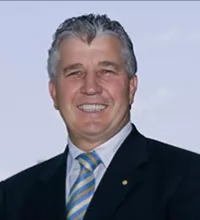A brain injury can have a terrible impact on a person's life, regardless of whether the injury is mild or severe. Receiving compensation for a traumatic brain injury sustained in a motor vehicle accident can assist the victim in moving forward with their life. However, receiving compensation is not always straightforward, particularly in cases where diagnosis was slow to occur.
Difficulty in diagnosing traumatic brain injury
A major difficulty in obtaining compensation for a traumatic brain injury is that it can be difficult to prove. This is because, unfortunately, traumatic brain injuries are not always obvious and can therefore be overlooked by doctors.
For milder cases, sometimes there is no mention of a brain injury in the ambulance, in hospital records or in the treating specialists' records. As a result, many accident victims find themselves discharged from hospital without knowing they have sustained a brain injury.
It is therefore often easier to get compensation in cases of severe brain injury, as the effects of the injury are much more obvious and are easily supported by abnormal post-traumatic amnesia assessments, abnormal Glasgow Coma Scores and positive radiological imagery.
Why early identification of traumatic brain injury is important
Early identification of brain injury is important, as the sooner the person can access rehabilitation, the greater their chance of recovery.
In addition, an undiagnosed traumatic brain injury can have a devastating impact on the person, as well as on their loved ones. Cognitive deficits and impulsive behaviours that can result from traumatic brain injuries can cause sufferers to disconnect from family, friends and colleagues, to lose their job and livelihood, to become anxious or depressed, or even to become "unlovable".
If the person suffered damage to their frontal lobes, which control impulse and personality, they may also be difficult to handle, acting aggressively and inappropriately at times, or being unreliable, disinhibited, impulsive and uncooperative.
Seeking compensation for a traumatic brain injury
Lawyers acting for brain injured people can find the process difficult and exhausting, not least because many brain injured victims have little insight or understanding of their new limitations or deficits.
The challenge for lawyers is to learn to recognise the symptoms of a traumatic brain injury and know what to do to prove it.
For milder traumatic brain injuries, it is important to have family members, friends and work colleagues provide statements about the person both before the accident, and after it. This creates a comparison of the victim's intellectual abilities, behaviours and their personality pre-and post-accident and demonstrates the impact of the accident on them.
Does the TBI sufferer have mental capacity to give instructions?
Lawyers must also evaluate whether the person has the mental capacity to give instructions, as well as administer the verdict or settlement money. Should expert opinion find that the person does not have "legal capacity", the lawyer must arrange for a tutor to be appointed to act in their place – providing instructions and, at the required time, obtaining court approval of the proposed settlement.
The lawyer must also advise the appointed tutor as to the choice of funds management and its costs. If required, the lawyer needs to apply to the Equity Division of the Supreme Court to appoint a funds manager other than the NSW Trustee and Guardian.
The content of this article is intended to provide a general guide to the subject matter. Specialist advice should be sought about your specific circumstances.

